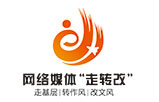Lower trade growth target encouraged for Guangzhou
By Qiu Quanlin in Guangzhou (China Daily) Updated: 2012-11-02 11:21
Experts urge revision as city sees slowdown in first three quarters
Trade authorities in Guangzhou, capital of Guangdong province, have asked the provincial government to halve its annual foreign trade growth target, following a slower performance in the first nine months of 2012.
"The targeted growth rate should be lowered, given the complicated global economic situation and a slower growth in the past three quarters," said Xiao Zhenyu, director of the Guangzhou Foreign Trade and Economic Cooperation Bureau.
Local customs sources said Guangzhou's foreign trade increased by only 2.1 percent year-on-year to about $87.3 billion in the first nine months of this year. Earlier this year, the authorities set a trade-growth target of 10 percent for 2012.
"The growth rate should be changed to 5-6 percent. Most cities like Guangzhou in the Pearl River Delta region will find it hard to realize the trade target as they have been hard-hit by slow global demand," Xiao said at a government news conference on Wednesday.
Feng Shengping, chief researcher at the Guangdong Situation Research Center, said trade is recovering and a growing number of processing companies in the delta region have resumed operations since the third quarter.
"Electricity consumption for industries has been rising since the second half of the year, showing that manufacturing is improving," said Feng, without elaborating.
However, Feng said it will be impossible to meet the foreign trade target, given that the city has registered a low growth rate.
"Guangzhou, along with other cities in the delta region, which has relied heavily on manufacturing and exports for economic growth in the past two decades, has been hard hit by decreasing global demand since early this year," Feng said.
Guangzhou recorded its worst export performance in 2009, with a negative rate of 13 percent.
Feng said the authorities have encouraged export-oriented enterprises to focus on developing new markets and boosting domestic consumption to sustain growth.
"The Pearl River Delta will no longer see rapid growth in foreign trade in the years ahead as cities in the region have been upgrading industries. It will take some time for the region to change its economic growth pattern," Feng said.
The weak trade performance was highlighted at the recent China Import and Export Fair, better known as the Canton Fair.
At the second session of the fair, transactions fell by 7.67 percent compared to the same session at the previous fair due to sluggish demand from the United States and Europe, the organizers said.
Han Heyuan, a sales manager at Guangzhou Gutex Holdings Ltd, which operates mainly in the textile and garment industry, said weak overseas demand has forced the company to focus on the domestic market.
"The domestic market plays a vital role for us to sustain business growth," Han said.
Zheng Jianrong, deputy director of the Guangdong Foreign Trade and Economic Cooperation Department, said the province, which contributes about one-fourth of China's foreign trade, will see slower trade growth next year.
"Trade will increase in the fourth quarter of the year. But the whole-year growth target will not be reached and weak global demand will continue next year," Zheng said.
Guangdong's foreign trade totaled $715.62 billion in the first nine months, a year-on-year increase of 6.1 percent.
Peng Peng, a senior researcher with the Guangzhou Academy of Social Sciences, said the city faces difficulties in realizing high growth in foreign trade in coming years.
"The era of high foreign trade growth has passed," Peng said.
"In the long term, China will become a major destination for imports. And the coastal region will rely on modern industries, including finance and logistics, to sustain its development."
qiuquanlin@chinadaily.com.cn
- Ford's China sales up 7% from January to April
- Yiwu-Madrid train line boosts China, Europe trade
- China's central bank pumps more money into market
- China's economic reform sets example: Russian expert
- Top economic planner vows to stabilize private investment
- China's supply-side reform to help sustain growth: UBS
- Pork price controllable: MOC
- China to shake up 2,000 year state salt monopoly

















